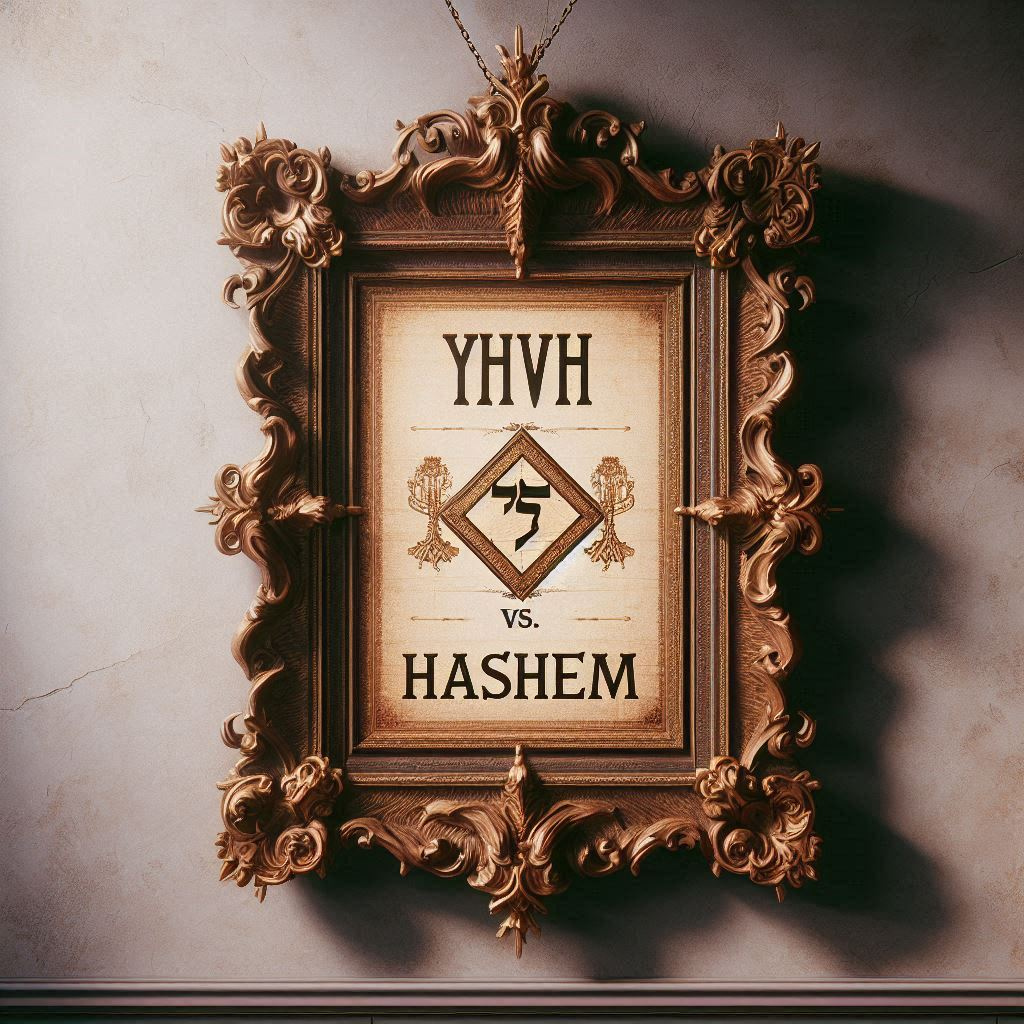The Ineffable Name Controversy: Breaking Traditions and Unveiling Truth
Introduction: In the realm of faith, the Name of Yehovah holds profound significance. However, the tradition of not uttering or writing this sacred name has sparked controversy and debate. This blog post delves into the origins, interpretations, and implications of this practice, shedding light on the true essence of the Ineffable Name.
The Tradition of Writing “G-d”: Many Jewish communities avoid writing the full name of God, opting for “G-d” instead. This practice stems from a passage in Deuteronomy, which commands the Israelites to destroy the names of non-Israelite gods. Rabbinic interpretations extended this to mean that God’s name should not be erased, leading to the tradition of writing “G-d”1.
Rabbinic Interpretations and Misinterpretations: Rabbinic authorities, such as Rashi, interpreted the prohibition against erasing God’s name as a reason to avoid writing it altogether. This led to the practice of storing or burying Jewish literature containing the name “God” once it fell into disrepair2. However, this interpretation has been contested, as the original scriptural intent was to prevent the worship of Yehovah in the manner of pagan gods3.
The True Name of Yehovah: The Father revealed His eternal and holy name to Moses, declaring it to be remembered for all generations (Exodus 3:15). Despite this, Rabbinic authorities replaced the name Yehovah with titles and descriptors like “Adonai” and “Elohim,” effectively nullifying the Torah’s instructions regarding the use of God’s name4.
The Impact of Rabbinic Regulations: By enacting regulations against using God’s name, Rabbinic authorities transgressed Yah’s eternal Torah. This has led to a widespread practice of substituting God’s name with titles, which often have pagan origins5. This practice contradicts the scriptural mandate to declare and magnify Yehovah’s name throughout the earth6.
Conclusion: As Torah-observant disciples, it is our duty to honor and proclaim the true name of Yehovah. By doing so, we fulfill the scriptural command to declare His name to all generations. Let us break free from traditions that obscure the true essence of God’s name and embrace the profound significance of Yehovah.
For those of you who would like to explore this week’s Torah Reading 13, I invite you to read and listen to the discussion entitled “Yehovah: the God Who Sees.” (Yehovah-The God Who Sees-STAR 13)
We’re Getting Married in the Morning–Thoughts and Reflections on Torah Reading 59
Shabbat Shalom Saints of the Most High. Welcome to the second post of our The Messianic Torah Observer Journal. Today is a special day of sorts. It’s not only the Sabbath, but it is also the start of the 9th Biblical Month. Rosh Chodesh. There are no mandated Feasts...
Learning to Lean on Yeshua Messiah–Thoughts and Reflections on Torah Reading 58
Shabbat shalom beloved. We pray that you, your families, and your fellowships are well and blessed during these perilous times. Despite these being perilous times, beloved, we who are the redeemed of Yah through Yeshua Messiah, can find refuge and shalom in our...
We were Baptized into Moses in the Red Sea
Our Baptism in the Red Sea Was Illustrative of our Transformation into the People of God So, in our departure from Mitsrayim/Egypt, which was representative of a would-be child of Yah coming into a covenant relationship with Yah through the Person and Ministry of...
Walking in God’s Divine Guidance and Protection
Introduction This week’s Torah Portion/Parshah/Reading is the 56th Reading in our 3-year Torah Reading Cycle. And it is contained in the Cepher of Exodus/Shemot 13:21-15:18. It is a continuation of last week’s reading which I entitled “The Key to Knowing...
The Key to Knowing God: Remembering and Obeying
In the past two readings, which we did not cover because we were on hiatus for the Fall Feasts, Yisrael experienced or witnessed the inauguration of Pesach in the midst of the final tenth plague that resulted in the death of every Egyptian/Mitsri firstborn and the...
The Thirst-Quenching Waters of Sukkot-The Feast of Tabernacles 2022
Sukkot-The Feast of Tabernacles is the Season of our Joy True joy is an offshoot of the indwelling of the Holy Spirit or the Ruach HaQodesh in each of us. Our joy, especially as expressed through Yah's Feasts, is incomplete without the Ruach HaQodesh's influence....
Getting to the Heart of Yom Kippur–Day of Atonement 2022
Yom Kippur Just a Day of Fasting? What did Yah truly mean by His people afflicting their souls on Yom Kippur? Was He commanded us to engage in just a fast? Turns out that Abba requires more from us on Yom HaKippurim than just a full day of not eating and drinking....
The Realities of Yom Teruah 2022
Introduction to our Discussion Welcome to the Day of the Blowing of Trumpets, or better, the Blowing of Shofars 2022. And with that, we pray that you are earnestly preparing and eagerly awaiting the arrival of Yom Teruah 2022. The title of our...
An Overview of the Fall Feasts of the LORD 2022-Part 1 of the Fall Feasts of the LORD 2022 Series
Resurrection Truth versus Rapture Error-Part 3 of the Death, the Grave, and the Resurrection Series
Introduction This is “Resurrection Truth versus Rapture Error.” This will be the 3rd installment to our Death, the Grave, and Resurrection series which spun off from our Torah Reading 45 which was entitled “And he (Ya’achov) was Gathered Unto His People. ...

